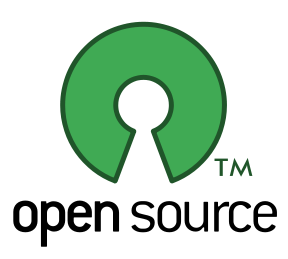Open source software
Interview with
Helen - You're listening to The Naked Scientists and now it's time to join Laura Soul who's been finding out about the latest developments in technology this month, and she's been looking into the world of open source software.
Laura - This month in technology, we're looking at open source software. That is software that you are free to use, modify, and redistribute yourself. At the moment, most software is proprietary, meaning it is owned by a company. You can't change it and you have to pay to use it. Recently, the alternative; open source software, has been becoming more popular. If you've used internet browsers such as Firefox or Google Chrome then you've been using open source software. I spoke to Michael Tiemann, the President of the Open Source Initiative.
 Michael - The idea of open source software was born as people began to look at the way that software developed on the internet was developed differently than software developed in proprietary commercial environments. What people found was that programmers who shared their work and who made their work easily accessible to other people, not just to download but also to read and to modify and to understand. That began to exhibit a degree of innovation and a degree of quality that was completely unpredicted by backers of the proprietary software model.
Michael - The idea of open source software was born as people began to look at the way that software developed on the internet was developed differently than software developed in proprietary commercial environments. What people found was that programmers who shared their work and who made their work easily accessible to other people, not just to download but also to read and to modify and to understand. That began to exhibit a degree of innovation and a degree of quality that was completely unpredicted by backers of the proprietary software model.
Laura - So what are the advantages of using open source?
Michael - The underlying architecture that was designed to be easy for others to work on was a superior way of building software than the traditional proprietary model which was to make things complicated to assume limited access and to assume that only the genius in the Ivory Tower would ever even want to look at the code, so why make it clear?
Laura - It seems the proprietary software still dominates the market. Why do you think this is?
Michael - In the world of information technology, there are many companies who have been accused and many companies who have been adjudicated to be monopolists, and this power of monopoly, which is explained very well in the courts shows that sometimes a monopoly can literally distort free market economics. They can bully the market to force the market to do what they want rather than what the market would freely choose if there were a choice.
Laura - That was Michael Tiemann, President of the Open Source Initiative. There has been news recently of a new open source operating system like Microsoft Windows or MAC OS, that's made by Google and free to download. Don Marti, Chair of the Open Source World Conference, happening in San Francisco in August, told me what effect this would have on the market.
Don - Where the impact is going to be is if PC manufacturers pick up on this Google Chrome OS and start putting it on computers that people can buy at their local electronics store. If you've got a lot of Google Chrome OS being sold to end-users, well, then all the companies that are out there making the printers and webcams and scanners and every device that you might want to plug into a computer are going to say "Well, we better get some Linux compatibility on this thing."
Laura - That was Don Marti, Chair of the Open Source World Conference. Microsoft is probably the most well-known proprietary software company. I spoke to Darren Strange, head of their open source engagement in UK.
Darren - There are many advantages in a proprietary model. There's things in terms of being able to take a holistic view of the whole platform and that enables us to deliver products that are more reliable, they are more secure and they are more consistent in many ways. Microsoft's on a really interesting journey and I think if you look at it for the last 10 years, we've really shifted to being a lot more open to open source. And what we're learning is to be a lot more pragmatic about understanding that we're not competing against open source as a philosophy, that's like competing against the air. We are competing actually against products. So we might compete against Linux. We might compete against other products like Open Office. But in the same way, we also learn to work with those products too, and we're profoundly optimistic about how Microsoft and the open source community can grow together for the benefit of our customers.
Laura - That was Darren Strange from Microsoft Open Source Engagement. Finally, Michael Tiemann explained his hopes for open source in the future.
Michael - I envision a world where more and more companies in the technology world are able to run as largely or fully open source companies. I think that this idea of continuous innovation is precisely what motivates people to join the open source community and I can tell you that it's very exciting to people when they realise that the machine that they boot; all of the source code that controls that machine is available for inspection.
Helen - That was Michael Tiemann and before that Darren Strange and Don Marti, talking to Laura Soul about news of a new open source operating system, Google Chrome OS and how the world of open source software could change in the future.










Comments
Add a comment